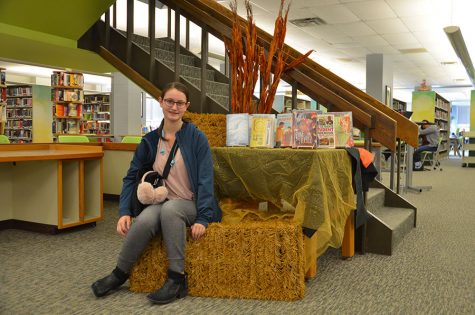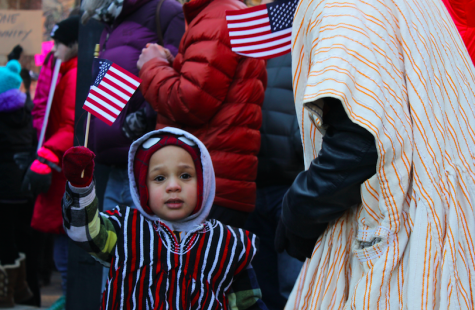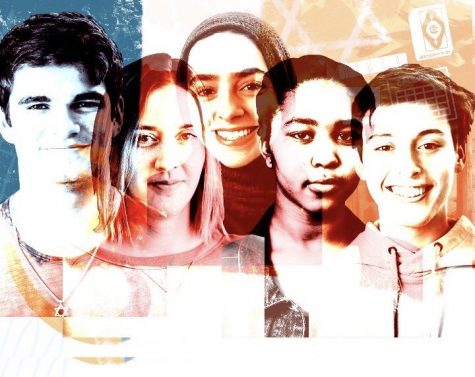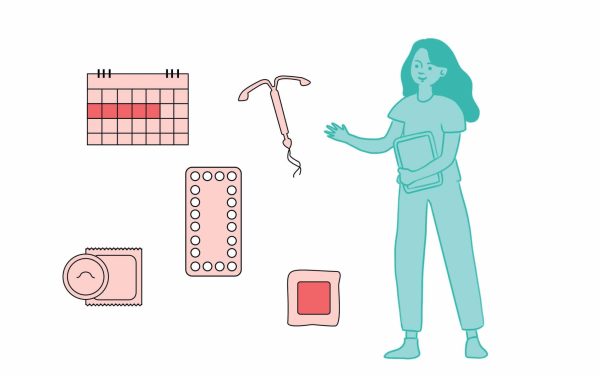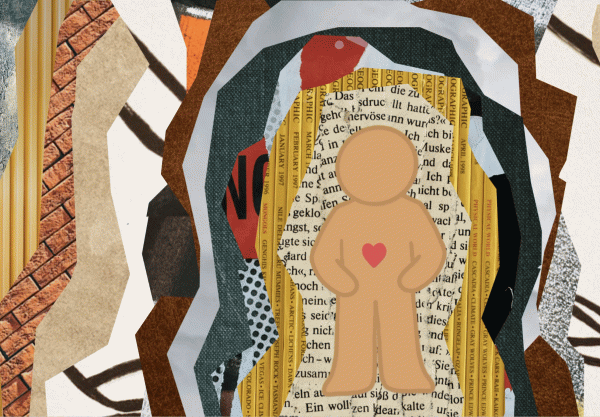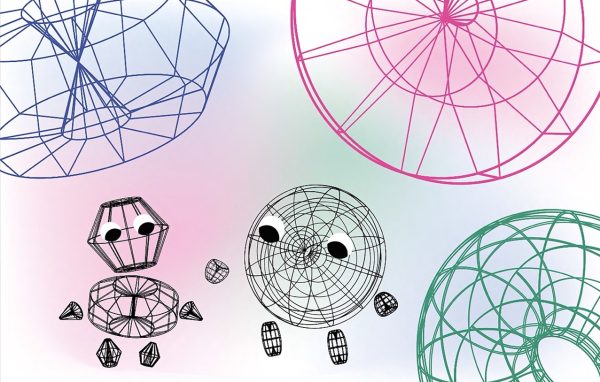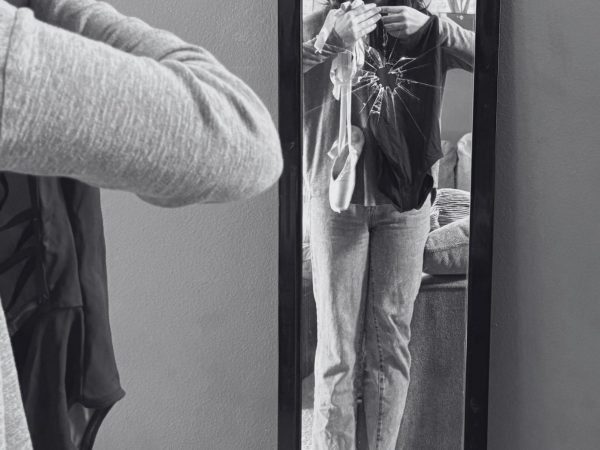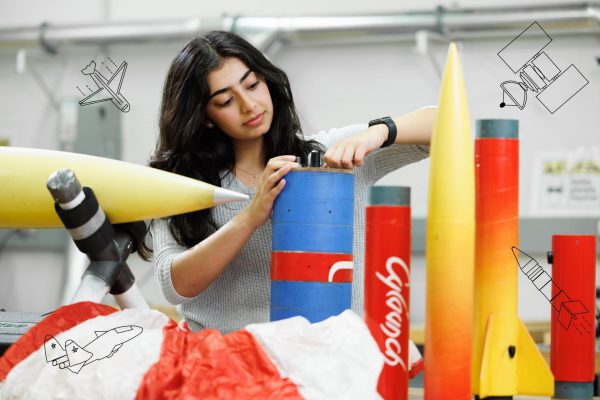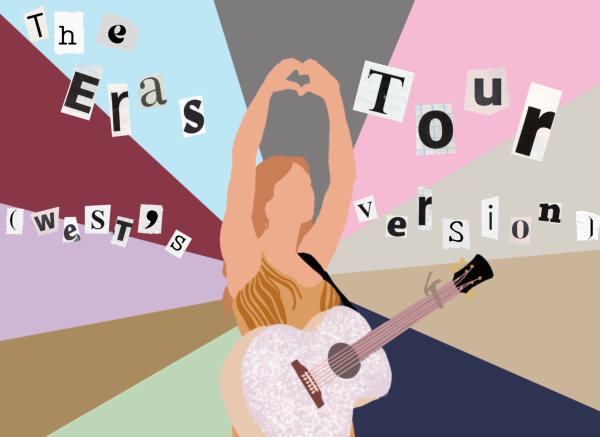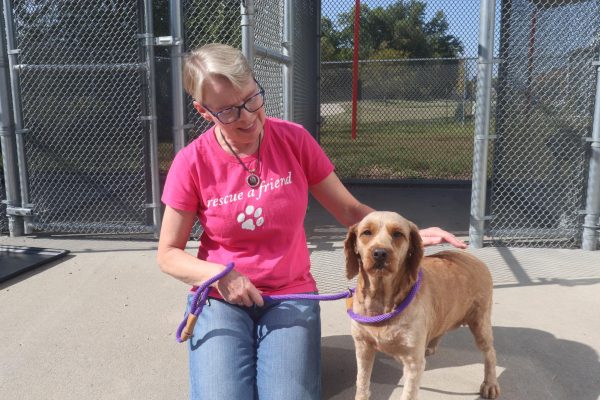A virtual Ramadan
A more digital approach to celebrating Ramadan has been taken by the local Muslim community this year.
You rush to a table full of food as soon as you hear the call to prayer. “Allahu Akbar, Allahu Akbar” (God is the greatest, God is the greatest) is all that echoes in your head as you break your fast with dates and sips of water. As your thirst becomes quenched and your veins moist, you turn to your family and friends with glee, acknowledging that you have completed your fast. After praying in congregation, you complete your three-course meal and head towards the mosque to pray the night prayer. There, you stand for hours of prayer with all types of members of the community right behind you.
This is a typical night for Muslims during Ramadan: a month centered around fasting and the community. Although Ramadan is a time for self-reflection and self-improvement, communities play a big role as well.
“The community plays a very big role in many things and one of them is just supporting each other [but especially] during Ramadan,” said Tasrin Taiba ’23, a practicing Muslim who has been participating in Ramadan since she was nine years old. “When we all gather [to break our fast] at the mosque, it makes you feel proud and happy that we’re all sharing something amazing together. I love just being around people during Ramadan.”
When we all gather [to break our fast] at the mosque, it makes you feel proud and happy that we’re all sharing something amazing together. I love just being around people during Ramadan.
— Tasrin Taiba '23
As a result of the pandemic taking place, the Muslim community is no longer able to congregate for prayers or for breaking their fasts. Mosques are where Muslims usually have their pinnacle of spirituality, and not being in such an environment has led to less motivation among individuals this Ramadan.
To aid everyone in having the motivation to persist through tireless nights of prayer and reciting the Quran, many community leaders have turned to a more digital approach. Zooms, live webinars, and YouTube videos have all been a means of spreading a positive light throughout the community and helping everyone make the best use of this Ramadan.
Infographic by Hana Abou Alaiwa
Locally, the Iowa City Mosque has been uploading Islamic videos on their YouTube channel every 2-3 days. These videos revolve around understanding the purpose of Ramadan and making sure to fulfill it.
“I think it’s amazing that [Muslim community leaders] are taking that extra step to stay connected during Ramadan and educating people,” Taiba said. “I think the quarantine might demotivate some people [like myself] but with things online, this could encourage many.”
Another challenge that has arisen this Ramadan is online schooling. Although most would assume that Ramadan would be easier for students during quarantine, many are still finding it difficult to fast and do online school work at the same time.
I think it’s amazing that [Muslim community leaders] are taking that extra step to stay connected during Ramadan and educating people.
— Tasrin Taiba '23
“The times of the Zoom meetings have been hard for me because of my sleeping schedule, but my teachers have been understanding when I explain it to them,” Taiba said.
Taiba went on to explain that she and her family stay awake praying and eating the pre-dawn meal until about 5:30 a.m. and wake up at around 2-3 p.m.
Ziad Hasabrabu ’20 faces a similar dilemma.
“Ramadan has interfered with me having online school because of how bad my family sleep schedule has gotten,” he said.
Sleep schedules normally change during Ramadan in order for worshippers to pray and eat during the night. With the flexibility of doing schoolwork at home, students are able to comfortably accept this. The problem is, though, that they would sleep past their Zoom classes that are in the morning or early afternoon.
Fortunately, many teachers are recording their Zoom meetings. This allows students who aren’t able to attend to still have access to them.
As the only Muslim teacher at West, geometry teacher Hanan Rahmatallah teaches her students while fasting. This Ramadan, however, has not been much of a challenge for her as she has learned to adjust over the years. “Regardless if I’m teaching remotely or face to face, that shouldn’t be a problem in Ramadan. I have been teaching for many years during Ramadan and I learned how to be patient and responsible,” she said.
It is safe to say that amidst all these changes, this Ramadan will set an interesting precedent for the future. Muslim students and teachers all over the country will have learned to be more flexible and more grateful for their communities by the end of it.
“Since we’re all home, it is a lot easier to just vibe and do our own things [this] Ramadan,” Taiba said. “[But with God’s permission], next year we will have a normal Ramadan and can celebrate with everyone else.”
Your donation will support the student journalists of West High School. Your contribution will allow us to purchase Scholarship Yearbooks, newsroom equipment and cover our annual website hosting costs.
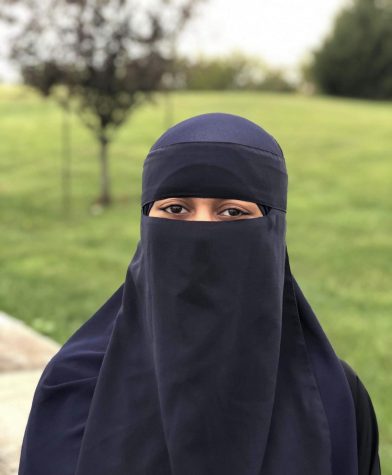
Hayate Mustefa is a sophomore and it is her first year on staff as a reporter for print. She enjoys learning about different cultures and...



